Exploited and abandoned: A child's journey to Europe
- Published
- comments
Italian MPs said the Giarre migrant centre was "not fit for a rubbish dump"
It's hard for anyone to feel alone in the world. For children it should be unimaginable.
But as Europe's leaders squabble over what should be done about the recent influx of refugees and other migrants to Europe - and there is no quick fix - some of the most vulnerable are slipping through the net.
The number of children seeking asylum in Europe has gone up almost 74%. According to Unicef, external, 106,000 children applied for asylum in the first six months of this year.
The very youngest - the under-10s - normally arrive here with a family member but the percentage of unaccompanied minors has shot up dramatically too.
Some are war orphans, others became separated from family members along the way.
Some were selected back home as The One to make a better life for themselves in Europe, with the hope of then sending money to family members or finding a way to bring them over legally at a later stage.
But Europe has been overwhelmed and woefully under-prepared for these children's arrival.
They are now pouring in through Greece and the border with Hungary but Italy was the first favoured destination point of the people smugglers over the last couple of years and that is where, a few months ago, I started to investigate what became of the under-18s who arrived there.
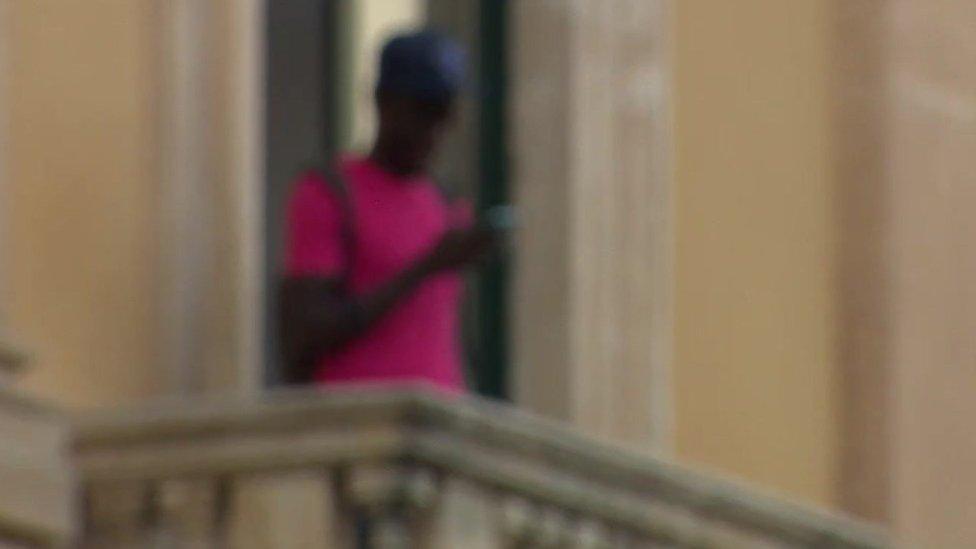
Many child migrants are victims of rape and robbery during their journey to Europe
Many of them from Syria, Eritrea and Afghanistan had experienced horror at home, some were robbed and raped on the perilous journey to Europe but, once here, they believed their troubles were over.
Sadly, they were wrong.
With the Italian authorities swamped and in disarray over the huge number of migrants and refugees landing on their shores, the door was left wide open for the unscrupulous to take advantage.
'Kids equal business'
A large number of the children were exploited from the word go.
Kids equal business in southern Italy, with some reception centres paid up to €75 (£55; £85) a day for every child they house (as opposed to €35 a day for adults).
Overwhelmed by the huge number of arrivals, Italian local authorities allowed private centres to open for children. With little control over what happens in them.
Our team went to Giarre centre for minors in Sicily after we heard shocking stories of neglect including lack of sanitation, exposed electricity cables and little pastoral care for the children there.
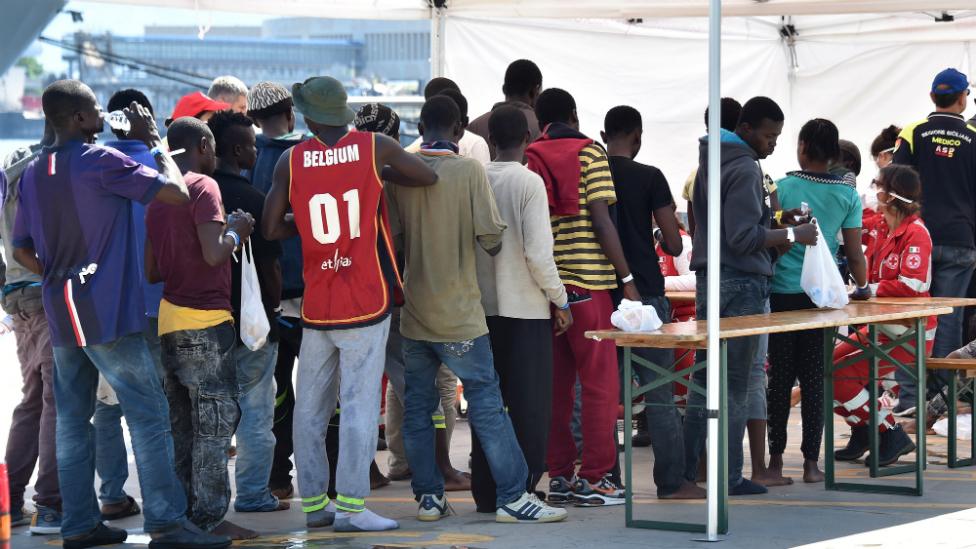
Italy, like many European countries, has been overwhelmed by the huge number of arrivals
Our investigation and an ensuing official one by Italian parliamentarians resulted in that centre being shut down a few days ago. But it's not just private centres; there are reports of malpractice in state-run centres too, including links to the Italian mafia
Fabio Sorgoni works for the Italian charity On The Road. He told me that there is a very short window of time to provide unaccompanied minors arriving in Europe with a safe haven.
By law they are allowed out of reception centres during the day when they easily fall prey to organised crime or individuals looking to exploit them, he said.
Few Italian centres have enough translators who speak the children's languages. They do not employ staff experienced in spotting victims of sexual exploitation.
Feeling uncertain and unprotected, thousands of children have run away from Italian reception centres, disappearing on to streets.
With no one stepping in or taking responsibility for them, they're left to fend for themselves. Doing what it takes to survive.
Rome's Termini station has become a hub for Middle Eastern boys with nowhere else to go. Some as young as 11, these are vulnerable youngsters exposed to the worst of humanity.
We kept track of the goings-on here over a number of months. We've seen the faces change, as some boys were arrested and others move on to northern Europe, but the stories they told us were depressingly similar.
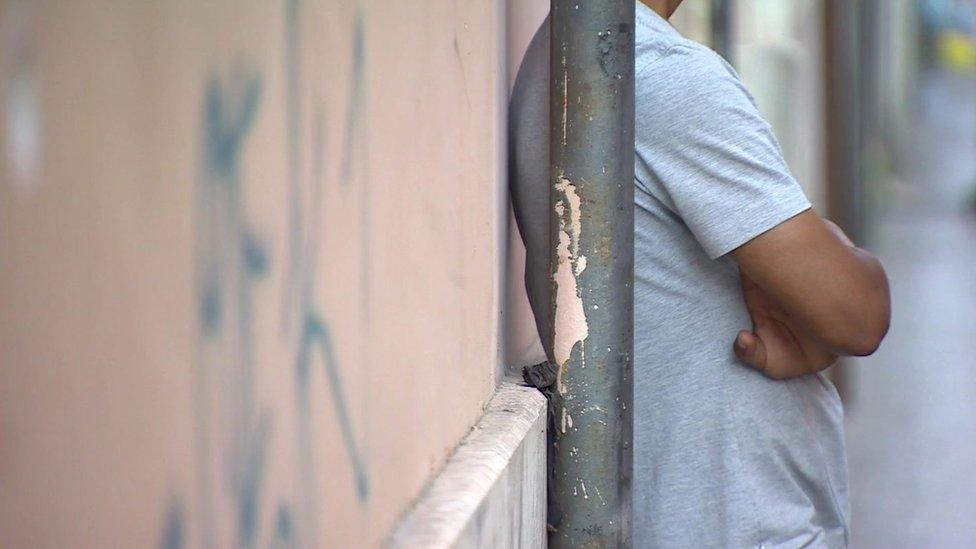
Some migrant boys say they have no choice but to sell sex in order to survive
Khaled, 14, told us he started selling drugs to buy food.
"I did it to avoid doing what other boys I know here are doing - having sex with Italian men. I've seen it with my own eyes. Boys - Egyptian, Tunisian and Moroccan - ask men for €50, even for €30."
We were in the station with undercover cameras and he was keen to show us how it works. He went to a local cafe known for soliciting and chatted up a middle-aged man there.
Most of the youngsters we met in Termini are Muslim, from conservative families. None admit to prostituting themselves for cash.
They all point the finger at others but Lassad, a Tunisian-Italian volunteer, who spends several evenings a week at the station trying to talk the boys there out of a life of crime, told me that most of the boys we met there dabbled in petty theft, selling drugs for bigger gangs and occasional prostitution.
"What do you expect?" he asked me. "How else do they pay back debts to people smugglers? How else do they eat? Some have nowhere to sleep. People round here know these boys are desperate and they prey on them here at the station. It's a market."
Young Hamid has already been to jail once for selling drugs. He says he calls his mum back in Egypt every week and lies to her about how things are going. He sleeps in buses at night and shows us the water fountain he washes in.
Didn't you imagine a better life for yourself here in Europe, I asked him.
"We came here thinking we would go to school, have somewhere safe to sleep, find a job - but it's not like that. Some of us work for a pittance in the markets, some sell drugs, others sell themselves."
"Once they've done it two or three times, they don't care anymore. If I'd known this I never would have come here."
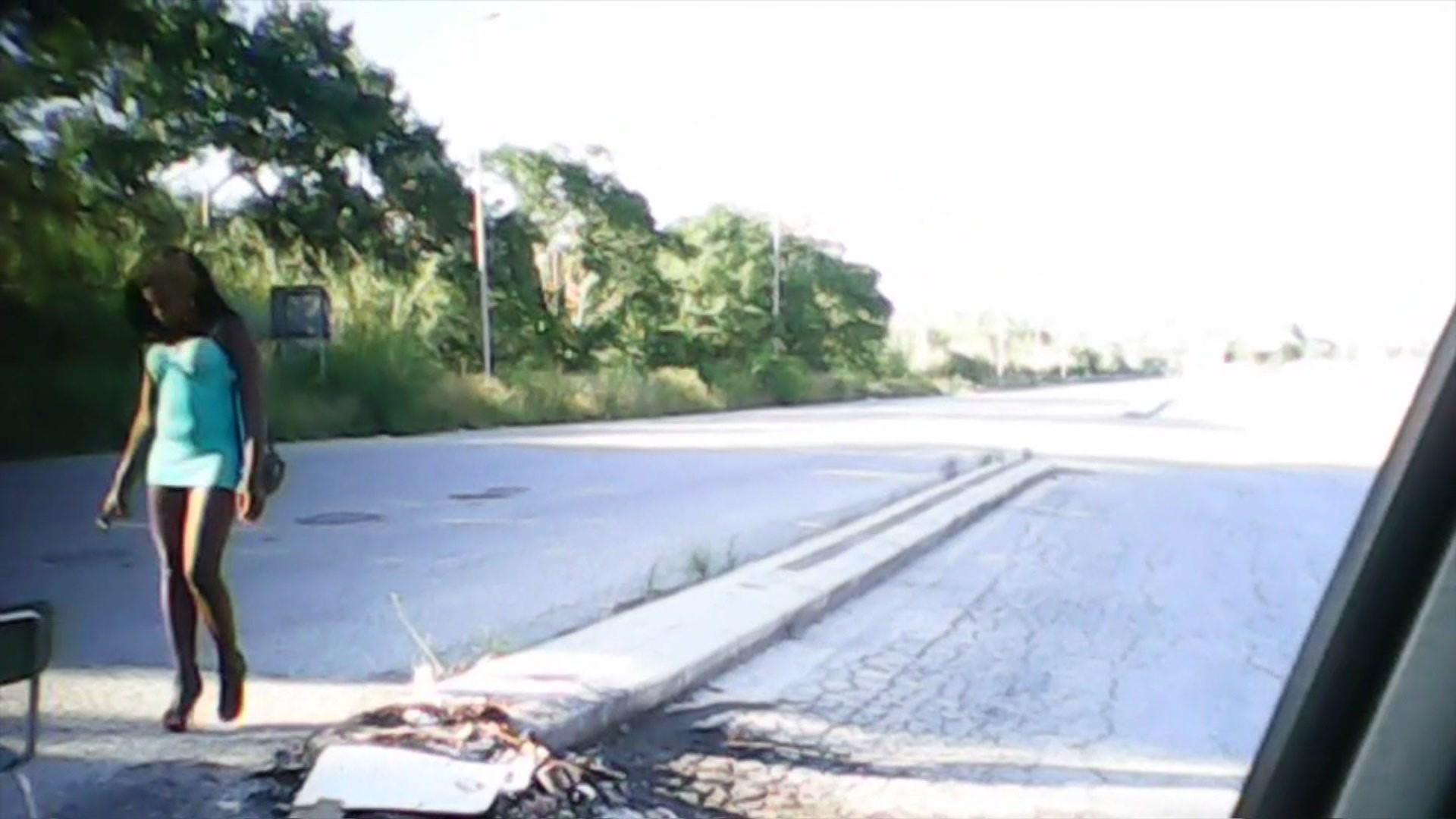
Many Nigerian girls are told they must pay traffickers thousands of euros or their families will be harmed
For many of these children, their escape route to Europe ends up feeling more like a road to hell.
The majority of unaccompanied minors reaching the EU are boys but, travelling from Rome to central Abruzzo, we discovered the desperate situation of young Nigerian girls in Italy.
There's long been a problem with Nigerian women trafficked here as sex workers but with the arrival of the boats across the Mediterranean, the number of Nigerian prostitutes - including very young teenage girls - has vastly increased.
'Debt bondage'
Typically, the girls leave home believing they're coming to Europe to work as hairdressers or carers.
Once they have made the arduous journey to Libya, their traffickers often lock the girls up for a time and sexually abuse them before putting them on dinghies bound for Italy.
On arrival, they force the girls into prostitution, saying they owe them €50-60,000 just for bringing them to Europe.
This is debt bondage, of girls as young as 13.
The going rate for sex on an infamous 15km (9 miles) deserted stretch in Abruzzo is €15, so paying back €50-60,000 will take years.
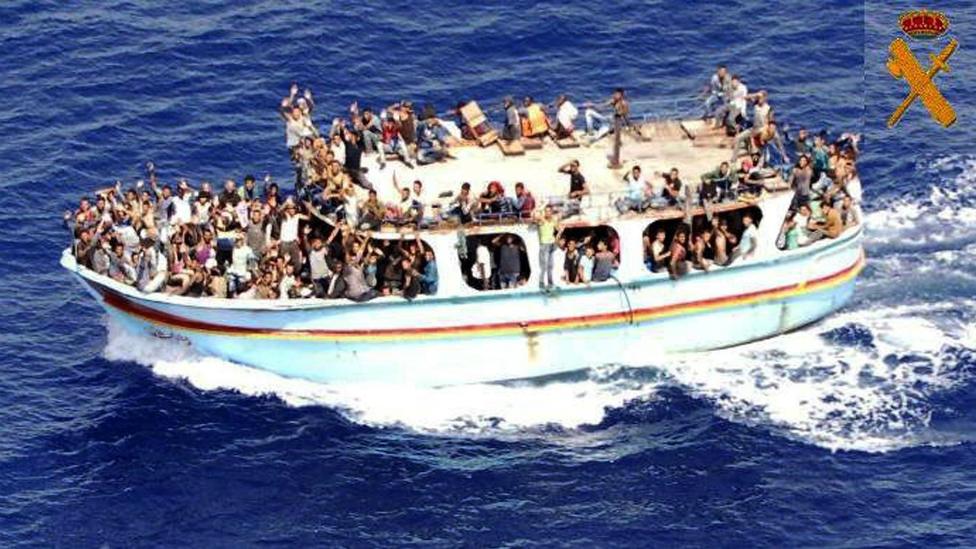
More and more youngsters are arriving in the EU on boats from the Middle East and Africa
Girls we spoke to who had managed to escape and are now in state care told us the traffickers threatened and physically assaulted their families if repayment was slow.
Late at night on the street some of the girls looked painfully young, even under their heavy makeup.
We found Annie selling herself by a bag of rubbish. She told us she had only recently arrived in Italy by boat. She seemed nervous.
Time is money, although the girls say sometimes they have sex for a bag of food.
This misery in Italy is mirrored a thousand-fold in dark corners and alleyways across the continent, as more and more unaccompanied youngsters make their way here.
International and EU legislation exists for the protection of minors, of course, but while Europe's leaders squabble and wring their hands over the influx of refugees and migrants, children are being abandoned to a terrible fate on our doorstep.